12 Questions Your Interior Designer Should Ask You
http://decor-ideas.org 07/27/2014 06:14 Decor Ideas
So, you’ve decided to redecorate. And because you know you need help, you’ve also decided to hire a decorator or an interior designer. What do you do next, other than anxiously chew your nails?
Designers are almost like psychiatrists, because they get to know some pretty personal things about you: your personal needs, your likes and dislikes, how you live in your home etc. So when you’re looking at candidates, make sure they ask the right questions. Here are 12 questions that any designer should discuss with you. And even if that doesn’t happen, this is vital information you need to get into their hands if you’re going to have a productive relationship.
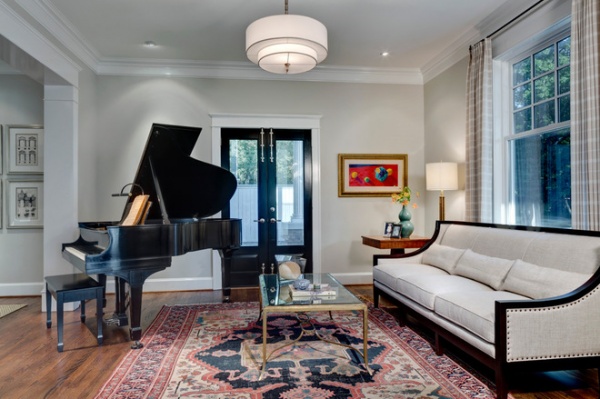
You may have a stereotype in your head of the imperious designer who sweeps into your house, takes a quick glance around, and declares, “Everything must go!” Let me assure you that most designers won’t do that, but if you’re interviewing one with that attitude, quickly move on.
The first question your potential designer should ask you, assuming you’re sitting in your home, is, “What do you love in this room?” This question is important because it assures you the designer is interested in what you want — what your tastes are — and is not determined to impose his or her tastes on you.
In this very attractive living room, for instance, the owner might have said he loves the grand piano. Fantastic! It’s a focal point and a great place to start. You can see how the rest of the room takes its cue from that one piece, in details such as the black doors and the trim on the sofa.
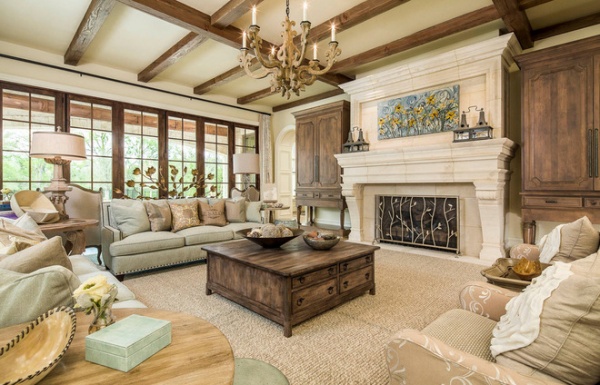
The second question follows fairly obviously. “What do you hate in this room?” That will help the designer understand your taste better, and will let him or her know things that might need to be replaced.
Keep in mind that we’re talking about personal taste here, so one man’s trash is another man’s treasure. The thing that you hate might be exactly the thing that another person absolutely loves. But it’s your house, so your likes and dislikes are what matter. A good designer won’t try to change your mind.
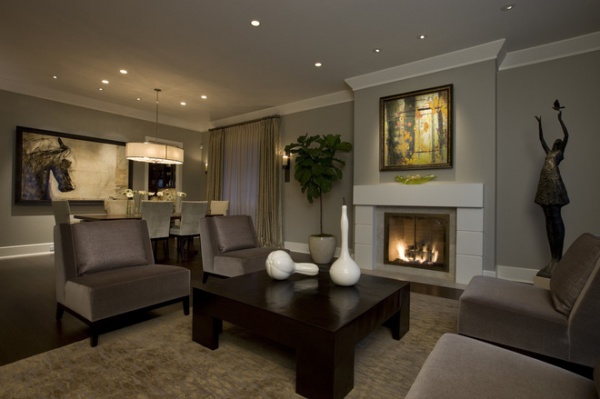
The third thing your designer needs to ask is, “What colors do you love?” For instance, if this is your living room, you definitely like cool neutrals with just a touch of color.
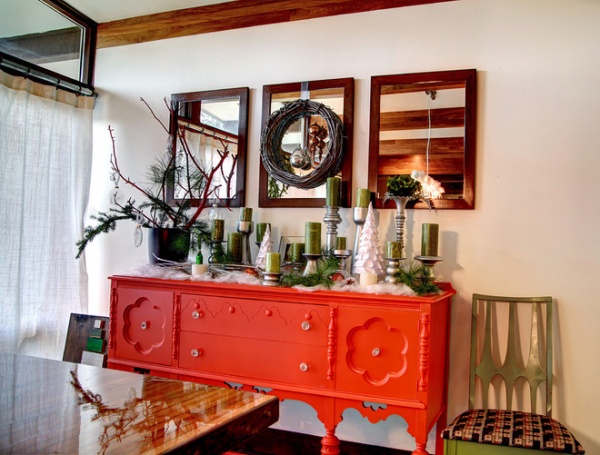
Number four is, obviously, “What colors do you hate?” If this is your dining room, and you love Grandma’s buffet but hate orange, then we’ll have a little tweaking to do.
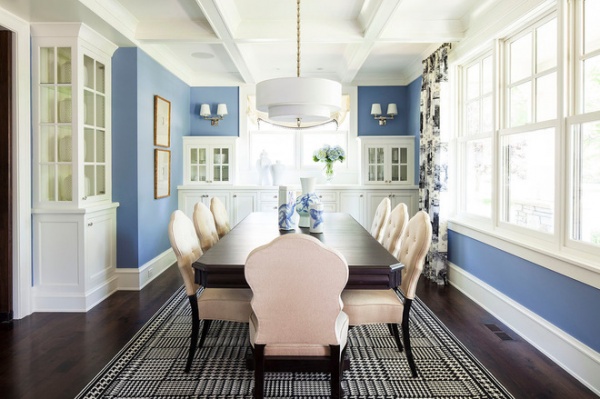
Question five is one that really helps in giving direction to a design process. “Is there something you have, or have seen, that you want to serve as your color inspiration?”
This could be a favorite picture or painting, a chair with a fabric you love, a piece of clothing, a set of dishes or — as in the case of this dining room, perhaps — a collection of blue and white vases. The vases could easily have been the inspiration that determined the direction of this entire blue and white dining room.
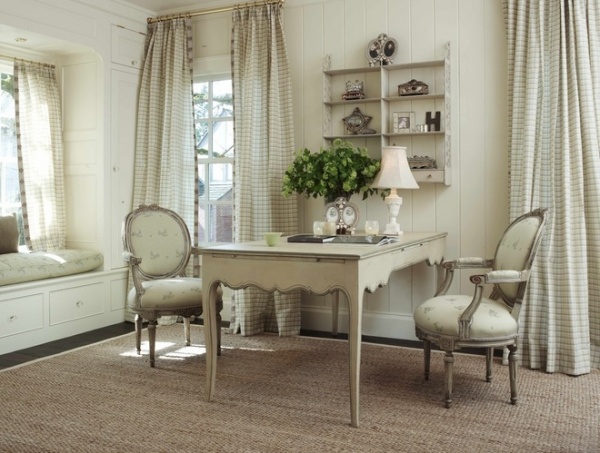
The sixth question your designer should ask you is, “Do you have a favorite look or style that you want to create?” This has to do with an overall aesthetic, as in this French country office …
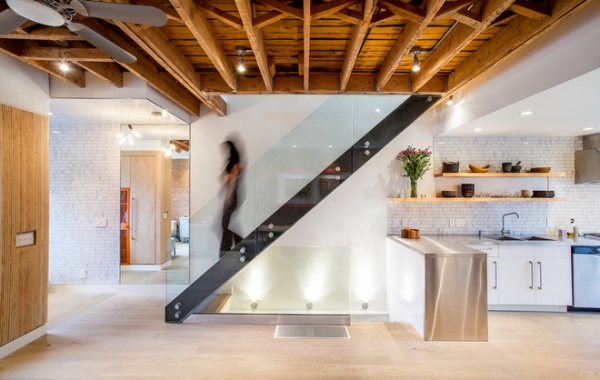
… or this sleek and modern kitchen and staircase.
As you’re pondering these questions, you might think, “I’m not really sure what colors and styles I love and hate. Is there a way to figure that out?”
One way that I’ve found very helpful with most folks is the “make two piles” assignment. Taking a digital approach, go through a bunch of photos on Houzz and create two ideabooks: one full of photos of rooms you love, the other full of photos of rooms you hate. Don’t overthink it: Just trust your visceral response. (You could also do the same thing with clippings from design magazines.)
Show your two “piles” to your designer. They will really help him or her get a feeling for your tastes and know how to help you achieve what you’re after.
How to Create and Use Houzz Ideabooks
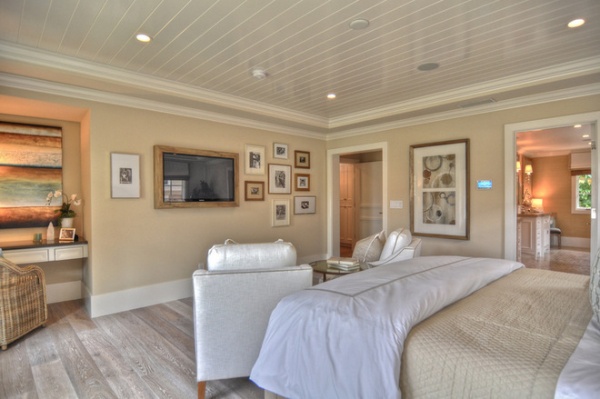
Another very important question your designer needs to ask is, “How do you use this room?” For example, if it’s the master bedroom, it will obviously be used for sleeping. But in this case, TV was also an important factor. So, furniture placement, technology and available space all needed to be considered here.
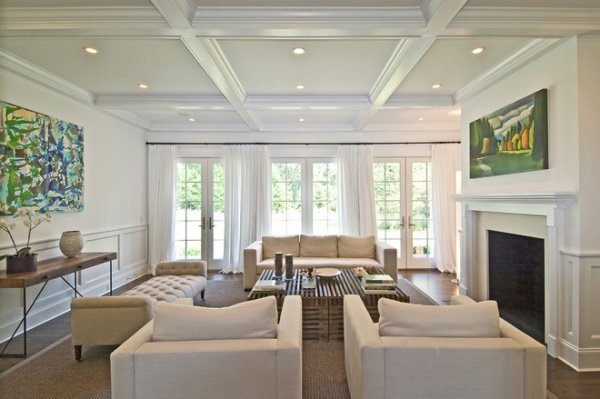
If it’s a living room, will it be just for formal use when guests come to visit?
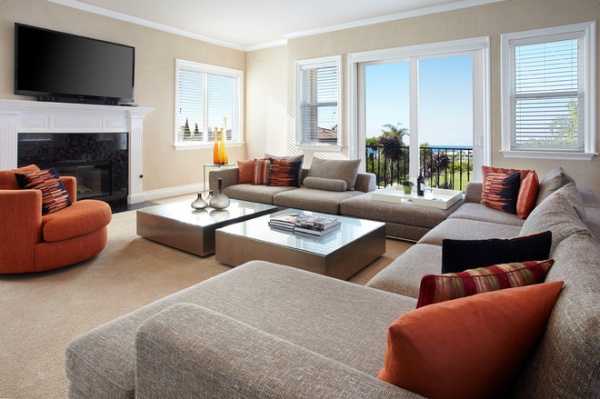
Or will it include entertaining guests but also be used daily for watching TV?
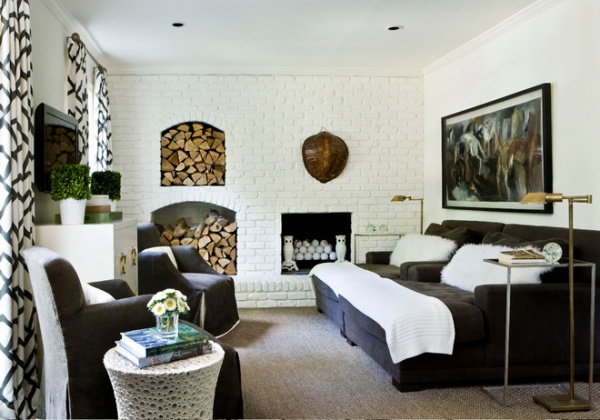
And speaking of TV, question eight is directly related: “How important is your TV-watching chair?” This may seem a bit odd to include in the top 12, but in my experience it can really become a big issue in the design of a room. If a TV-watching chair not important to you, then of course it won’t be an issue. But if it is, then everything else in the room may become subordinate to the TV and the chairs for watching it. This isn’t a bad thing — it’s just necessary information if a designer is going to serve you well.
In this living room, for instance, comfortable TV-viewing chairs were clearly very important, and the way that was accommodated proved to be quite stylish.
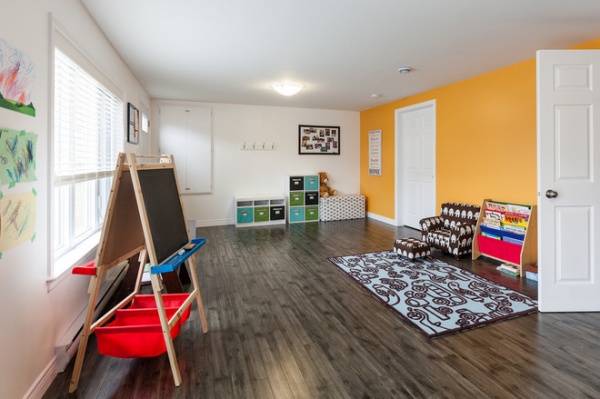
A related but separate question is number nine: “Are there any special needs that should be considered?” This relates to things like an elderly person’s needing an especially firm chair that’s easy to get up from, or accommodating a wheelchair, or addressing allergy issues.
In this kids’ activity room, for example, a laminate floor and 36-inch-wide doors permit easy wheelchair access.
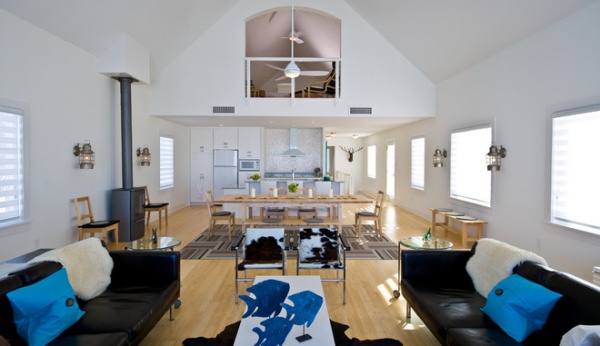
Question 10 has to do with timing. “Do you want to accomplish this all at once or in phases?” If it’s going to be a step-by-step process, your designer will be able to suggest which pieces should be purchased first and which later, so the room will be usable from the beginning.
In this smart-looking contemporary great room, for example, phase one could have been the two sofas and the coffee table, and phase two could have been the cowhide chairs and end tables.
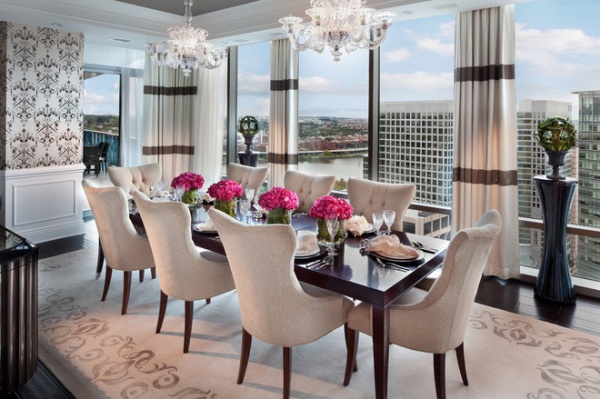
The 11th question absolutely needs to be asked, even if it might make you a bit uncomfortable: “What’s your budget?” Not defining the budget can make for a great deal of unhappiness as your project progresses. You need to know what to expect budget-wise, and your designer needs to know if there’s room for a little extravagance if he or she finds something spectacular for your project, or if strict discipline is required.
Let’s say you have a vision for a fantastic dining room like this one. Is your budget going to be $1,000 or $10,000? Don’t be shy; just tell your designer.
Then it’s your turn to ask a question.
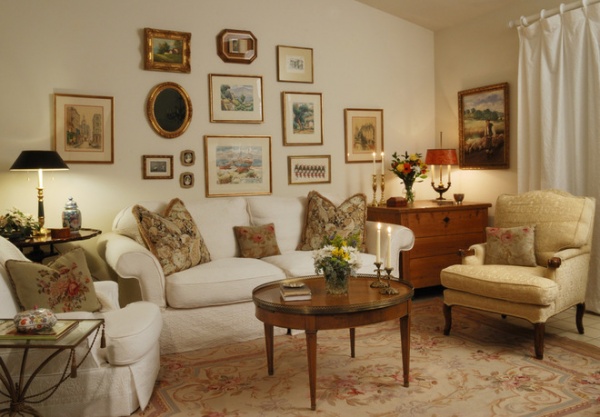
Ask your designer, “Is this a realistic budget to accomplish my vision?”
A good designer will be straightforward with you. The answer could be, “Absolutely, that is just about right for doing a great job on this project.” Or, “That will get us off to a good start, but you’ll need to invest a similar amount for phase two.” Or even, “I think we need to go back to the drawing board, because your expectations are way too high for the amount you want to spend.”
You might be disappointed by what you hear, but much better that than ending up with a bank-breaking surprise at the completion of what should be a fun and exciting project.
If your budget and your dreams don’t match, often your designer can give you some great suggestions about getting started or even about concentrating on a different area of your home that might be more affordable. For example, he or she might suggest that your budget will allow you to really complete the look of your living room by adding a rug, a new chair and a few pictures to finish your art collection over the sofa. Voilà! Your living room is now fantastic, and you’ll get to your dining room later.
Decorating 101: How Much Is This Going to Cost Me?
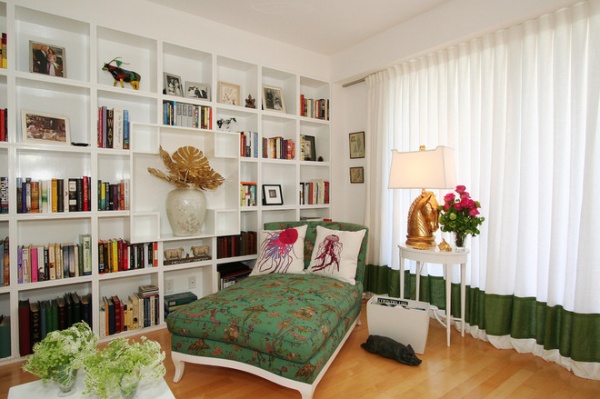
Whether it’s a small project or a big one, an interior designer or decorator can really help you get the result you’re looking for, and can keep you from making costly mistakes. But make sure your designer is asking you the right questions. If he or she is, chances are it will be a successful collaboration, and you’ll be delighted with the results.
Decorators and interior designers: What other questions would you add to this list?
More: Decorating 101: Do It Yourself or Hire a Pro?
Find a pro: Browse interior designers and decorators on Houzz
Related Articles Recommended












